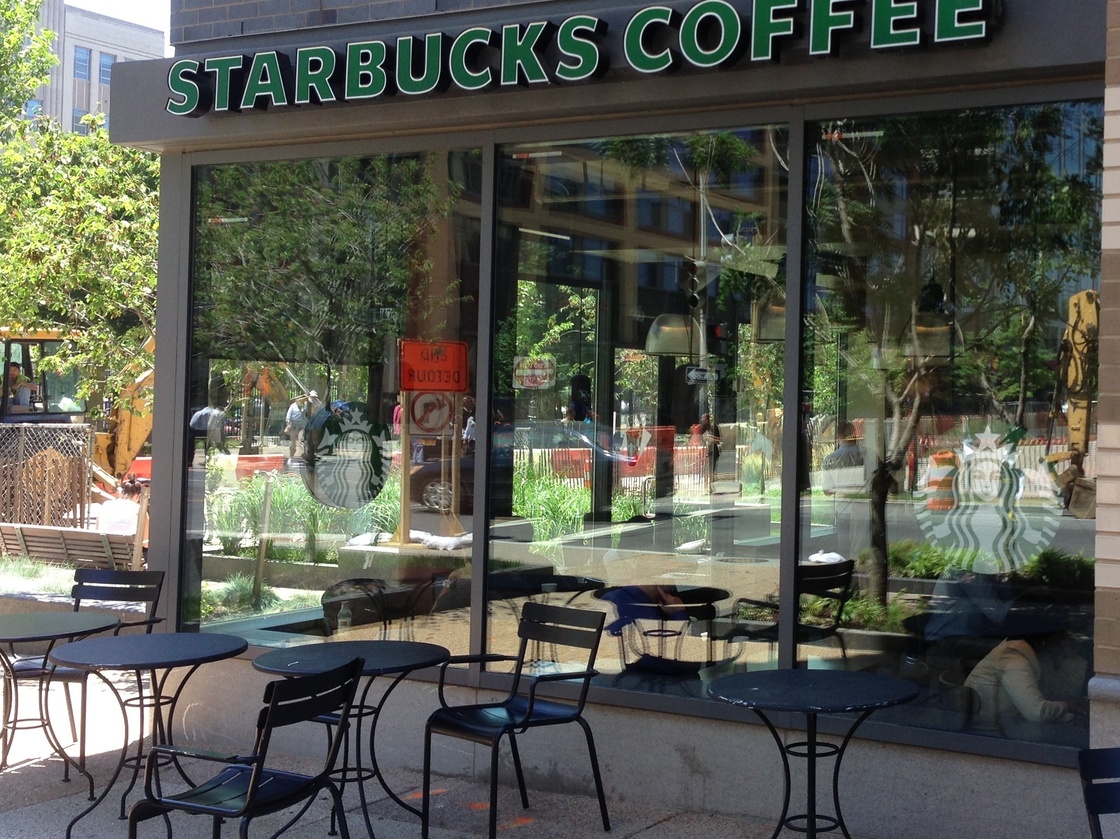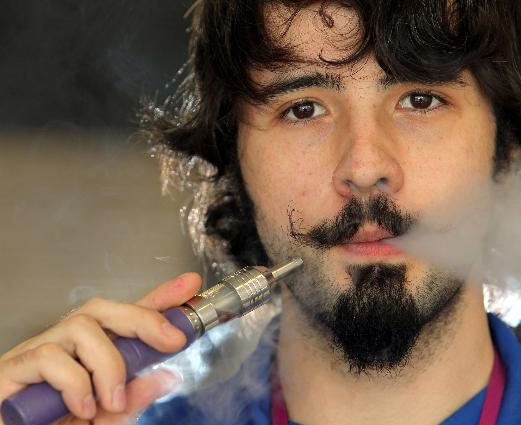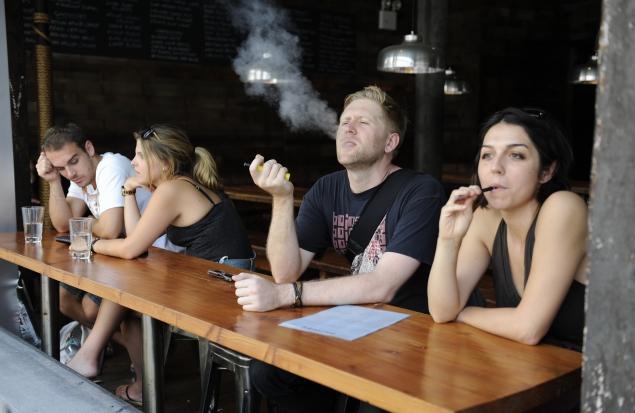Check Up: Study of casinos raises alarm on secondhand smoke
By Don Sapatkin, Inquirer Staff Writer
A half-century after a U.S. Surgeon General’s report raised the alarm on tobacco, most Americans know that smoking may eventually cause lung cancer. Far less appreciated is what can happen just minutes – 60 seconds, according to some research – after taking in a breath of smoke, even secondhand.
In the bloodstream, platelets are activated and become sticky. They clump together to form clots that can cause a heart attack or stroke. They stick to artery walls, ripping the lining when blood flow increases and interfering with the vessels’ ability to expand and contract as needed.
In the bloodstream, platelets are activated and become sticky. They clump together to form clots that can cause a heart attack or stroke. They stick to artery walls, ripping the lining when blood flow increases and interfering with the vessels’ ability to expand and contract as needed.
“I’m sure you’ve heard, ‘If you’re having a heart attack, take an aspirin,’ ” said Stanton Glantz, a professor of medicine at the University of California, San Francisco. “Aspirin is an anti-platelet agent. And what the smoke is doing is exactly the opposite.”
His latest research, analyzing ambulance calls from casinos, illustrates the point.
Smoke-free laws in most of the country, including Pennsylvania and New Jersey, partly or completely exempt casino floors. Colorado’s law changed in the middle of the 13-year study period, offering what Stanton calls “a natural experiment” in secondhand smoke’s short-term effects.
On July 1, 2006, the state implemented a smoking ban in all workplaces, public spaces, restaurants, and bars; casinos were exempt. Ambulance calls in rural Gilpin County dropped 23 percent from locations other than its two dozen casinos, where they were unchanged.
Gambling floors were added to the law effective Jan. 1, 2008. Ambulance calls from casinos (and their parking lots) swiftly dropped 19 percent; every place else remained the same.
Numerous studies have found declines of roughly 20 percent in hospitalizations for various conditions after comprehensive smoking bans, Glantz said. That is likely due to a mix of short- and long-term factors: less secondhand smoke, more smokers quitting, and a snowball effect that further reduces smoking rates.
By focusing on emergency calls from casinos, which players visit for specific time periods, the new study was better able to isolate the near-instantaneous effects of exposure to secondhand smoke.
The study, published last month in the journal Circulation, did not track outcomes or reasons for the calls. Instances of wheezing, runny eyes, and elevated blood pressure weren’t recorded either, noted Jennifer Ibrahim, an associate professor of public health at Temple University, who studies tobacco and public health law.
“It is probably 10 times that for people who are experiencing symptoms, but might not need a trip to a hospital,” she said.
Tobacco companies have worked for years to exempt casinos from smoke-free laws, said Glantz and Ibrahim, who have each examined the links.
Delaware bans smoking in casinos. New Jersey exempts them, but defers to localities, and Atlantic City restricts smoking to 25 percent of the floor. Pennsylvania allows smoking in up to 50 percent of the casino floor and preempts all local smoke-free laws except Philadelphia’s – but supersedes it specifically for the gaming floor, where the city would prohibit smoking.
Glantz argues that lawmakers who say they are concerned about costs ought to read the research. “A heart attack is a lot of money,” he said, much of it paid by taxpayers.
http://articles.philly.com/2013-09-15/news/42083527_1_casinos-secondhand-smoke-smoking-rates
His latest research, analyzing ambulance calls from casinos, illustrates the point.
Smoke-free laws in most of the country, including Pennsylvania and New Jersey, partly or completely exempt casino floors. Colorado’s law changed in the middle of the 13-year study period, offering what Stanton calls “a natural experiment” in secondhand smoke’s short-term effects.
On July 1, 2006, the state implemented a smoking ban in all workplaces, public spaces, restaurants, and bars; casinos were exempt. Ambulance calls in rural Gilpin County dropped 23 percent from locations other than its two dozen casinos, where they were unchanged.
Gambling floors were added to the law effective Jan. 1, 2008. Ambulance calls from casinos (and their parking lots) swiftly dropped 19 percent; every place else remained the same.
Numerous studies have found declines of roughly 20 percent in hospitalizations for various conditions after comprehensive smoking bans, Glantz said. That is likely due to a mix of short- and long-term factors: less secondhand smoke, more smokers quitting, and a snowball effect that further reduces smoking rates.
By focusing on emergency calls from casinos, which players visit for specific time periods, the new study was better able to isolate the near-instantaneous effects of exposure to secondhand smoke.
The study, published last month in the journal Circulation, did not track outcomes or reasons for the calls. Instances of wheezing, runny eyes, and elevated blood pressure weren’t recorded either, noted Jennifer Ibrahim, an associate professor of public health at Temple University, who studies tobacco and public health law.
“It is probably 10 times that for people who are experiencing symptoms, but might not need a trip to a hospital,” she said.
Tobacco companies have worked for years to exempt casinos from smoke-free laws, said Glantz and Ibrahim, who have each examined the links.
Delaware bans smoking in casinos. New Jersey exempts them, but defers to localities, and Atlantic City restricts smoking to 25 percent of the floor. Pennsylvania allows smoking in up to 50 percent of the casino floor and preempts all local smoke-free laws except Philadelphia’s – but supersedes it specifically for the gaming floor, where the city would prohibit smoking.
Glantz argues that lawmakers who say they are concerned about costs ought to read the research. “A heart attack is a lot of money,” he said, much of it paid by taxpayers.
http://articles.philly.com/2013-09-15/news/42083527_1_casinos-secondhand-smoke-smoking-rates



